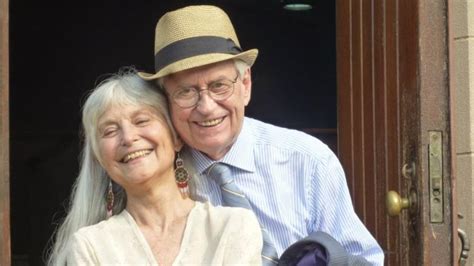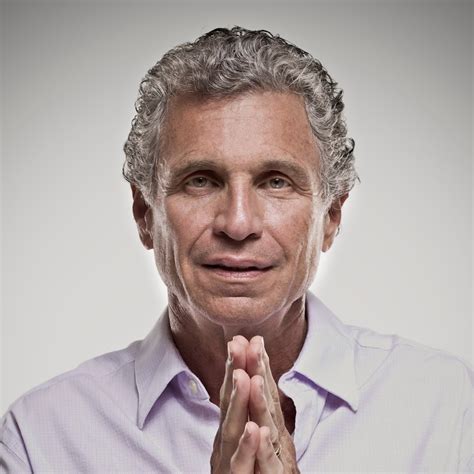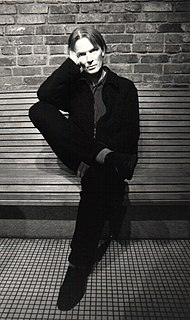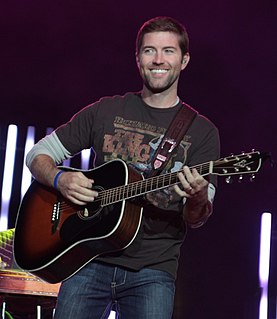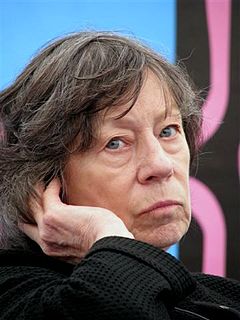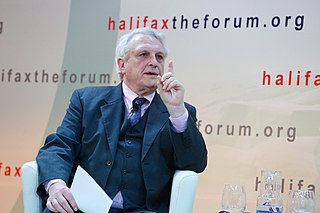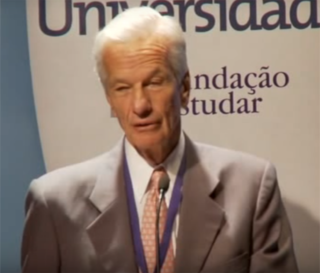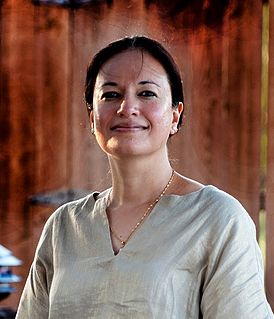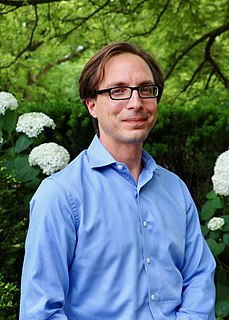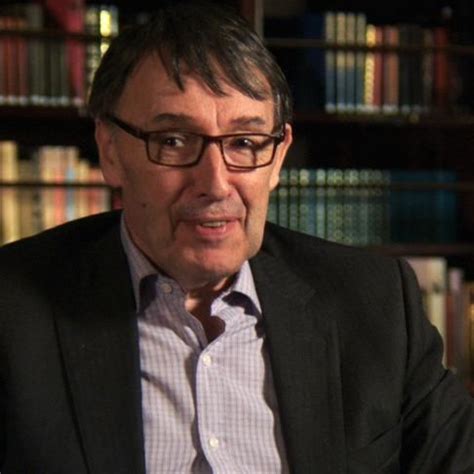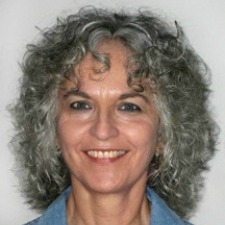Top 1200 Academic Life Quotes & Sayings - Page 18
Explore popular Academic Life quotes.
Last updated on December 21, 2024.
It is fashionable in some academic circles to exercise scholarly criticism of the Bible. In so doing, scholars place themselves above the Bible and seek to correct it. If indeed the Bible is the Word of God, nothing could be more arrogant. It is God who corrects us; we don’t correct Him. We do not stand over God but under Him.
Storytelling is how history is passed. It's what our ancestors did, it's what everybody's done. It has to come back into a story because otherwise, it's stuck in this book and it's boring and it's academic and I'm not against intelligence and I'm not against education, I don't want to be misunderstood, but we have tell the stories to our young people a little bit early and history gives us a lot of things.
In 1974 I nearly got into a fistfight with some early academic feminists in a restaurant when I casually alluded to a hormonal element in sex differences. It was utterly unacceptable at that time to think or say such a thing... If you have any doubts about the effect of hormones on emotion, libido and aggression, have a chat with a transexual, who must take hormones medically. He or she will set you straight.
I started work on my first French history book in 1969; on 'Socialism in Provence' in 1974; and on the essays in Marxism and the French Left in 1978. Conversely, my first non-academic publication, a review in the 'TLS', did not come until the late 1980s, and it was not until 1993 that I published my first piece in the 'New York Review.'
If the students don't want to learn about evolution, they shouldn't be in the course. A biology course that teaches creationism is not a science course, it's a religion course. So the students demanding that creationism be given credence in that course are out of line and are denying the academic freedom of the professor. They are calling into question the scientific basis of the material that's being presented. And students are not in a position to do that.
One Spirit Medicine allows you to experience communion with Spirit and understand the workings of creation. This understanding is not academic or intellectual; it’s kinesthetic and sensory-a knowingness that pervades every cell of your body...you experience a transcendent awareness that penetrates your whole being. You truly grasp that energy and consciousness can never be destroyed, only transformed into myriad shapes and forms, one of which happens to be you.
An academic discipline, or any other semiotic domain, for that matter, is not primarily content, in the sense of facts and principles. It is rather primarily a lived and historically changing set of distinctive social practices. It is in these practices that 'content' is generated, debated, and transformed via certain distinctive ways of thinking, talking, valuing, acting, and, often, writing and reading.
I love kids that come to shows, little kids coming up to you with braces; like, some kid came up to me in a parking lot outside a show in Santa Cruz - he was about 14 or 15 - and he said, 'Y'know, I love 'The Basketball Diaries,' but I hope your next book of poetry isn't gonna be as academic as 'Living at the Movies' was.'
There were only 75 people in my graduating class at the school I attended in Hannah, S.C. It was a small school and that translated into not a lot of opportunities when it came to music. We had academic and sports programs but we never had a consistent music program. We would have a band one year, and a chorus one year, but nothing ever lasted.
It's hard for me to say what would happen if I didn't go to art school. It wasn't that I learned any specific painting or drafting skills at school that I felt I couldn't have taught myself. However there is something quintessentially unique and important that you gain by immersing yourself in ascholastic and creative universe, and being held to certain academic standards while being surrounded by artists of varying disciplines.
The first time I saw Douglas Sirk was in college. I didn't encounter him on the late, late, late show like a lot of people; people a little older than me, maybe. But I saw him already as someone to take special note of in an academic context in college. I was immediately in a state of visual splendor.
If we want to identify the great success of American research universities, and that success goes far beyond Harvard, we have to come back to the question of governance. Excellence requires a firewall between trusteeship, or government ministries, and the academic decision-making process. This American concept of shared governance wherein the faculty are engaged in running the university as part of a collaboration with the other stakeholders.
People are attracted to teaching because they want to make a real impact. The teachers who are making the greatest difference go far beyond meeting standardised test measures. They aspire to truly level the playing field for their students, which means inspiring a love of learning, fostering the highest levels of critical thinking, building perseverance in working towards academic excellence, and so on.
[At high school in Cape Town] my interests outside my academic work were debating, tennis, and to a lesser extent, acting. I became intensely interested in astronomy and devoured the popular works of astronomers such as Sir Arthur Eddington and Sir James Jeans, from which I learnt that a knowledge of mathematics and physics was essential to the pursuit of astronomy. This increased my fondness for those subjects.
One absolutely crucial change is that feminist film theory is today an academic subject to be studied and taught. "Visual Pleasure and Narrative Cinema" was a political intervention, primarily influenced by the Women's Liberation Movement and, in my specific case, a Women's Liberation study group, in which we read Freud and realised the usefulness of psychoanalytic theory for a feminist project.
The Ph.D. system was designed for a job in academics. And it works really well if you really want to be an academic, and the system actually works quite well. So for people who have the gift and like to go spend their lives as scholars, it's fine. But the trouble is that it's become a kind of a meal ticket - you can't get a job if you don't have a Ph.D.
There are those who would draw a sharp line between power politics and a principled foreign policy based on values. This polarized view - you are either a realist or devoted to norms and values - may be just fine in academic debate, but it is a disaster for American foreign policy. American values are universal.
Anti-Americanism is as old as the Republic--a historical constant, which is only remotely related to specific American behavior. So what is new? Andrei Markovits has delivered the best answer yet, ranging across an astounding wealth of material from politics and culture. Uncouth Nation is a rare academic treat. Rigorous and analytical, the book is also a pleasure to read as it penetrates a critical issue of our time.
Once you have made peace with the present moment, see what happens, what you can do or choose to do, or rather what life does through you. There are three words that convey the secret of the art of living, the secret of all success and happiness: One With Life. Being one with life is being one with Now. You then realize that you don't live your life, but life lives you. Life is the dancer, and you are the dance.
One of the things about being a law student is that the academic discipline of law is very often removed from the practical reality of law. How to complain, who to complain to, and whether or not you even need to invoke the law is very different in the real world from how it's examined in the lecture theatre.
In the United States, one of the main topics of academic political science is the study of attitudes and policy and their correlation. The study of attitudes is reasonably easy in the United States: heavily-polled society, pretty serious and accurate polls, and policy you can see, and you can compare them.
There is no theory. You have only to listen. Pleasure is the law. I love music passionately. And because l love it, I try to free it from barren traditions that stifle it. It is a free art gushing forth, an open-air art boundless as the elements, the wind, the sky, the sea. It must never be shut in and become an academic art.
A good rule of thumb is as follows: If the numbers come from somebody wearing a tie (Wall Street economist or analyst, industry public relations department, captive think tank academic and so on), you ought to be very skeptical. By design messages from these people are intended to move markets, move merchandise and/or move public policy and are not a comment on the state of the physical universe.
I talk about folding it in often with Althea, my girlfriend. She's getting her doctoral degree at Berkeley and she talks about how even when writing these very academic, and, for the most part, serious papers there's just so much going on in her head and heart, and it's a reminder that there's a reason that she's studying these things.
I have read all of Daniel Aaron's books, and admired them, but in The Americanist I believe he has composed an intellectual and social memoir for which he will be remembered. His self-portrait is marked by personal tact and admirable restraint: he is and is not its subject. The Americanist is a vision of otherness: literary and academic friends and acquaintances, here and abroad. Eloquently phrased and free of nostalgia, it catches a lost world that yet engendered much of our own.
Education in our family was not merely emphasized, it was our raison d'etre ... In this family of accomplished scholars, I was to become the academic black sheep. I performed adequately at high school, but in comparison to my older brother, who set the record for the highest cumulative average for our high school, my performance was decidedly mediocre.
I almost flunked first grade and also the second, third, forth, and fifth; but my younger brother was in the grade behind me and he was a brain and nobody wanted to have me be in the same grade as him, so they kept passing me. I never learned how to spell, graduated from eighth grade counting on my fingers to do simple addition, and in general was not a resounding academic success.
DURING THE PAST TWO TO THREE DECADES, we have acquired substantial evidence that most chronic diseases in America can be partially attributed to bad nutrition. Expert government panels have said it, the surgeon general has said it and academic scientists have said it. More people die because of the way they eat than by tobacco use, accidents or any other lifestyle or environmental factor.
In a post 9/11 world, in which the uncritical essentializing of people from the "Third-World" has been legitimized; Iraq and Afghanistan have been dehumanized in an attempt to disseminate enlightenment in those "dark" regions; the discourse of "honor killings" is prevalent in the North West Frontier Province of Pakistan and has carved a niche in Western academic discourse as another instance of the incorrigible bestiality of the Orient.
The life of any one can by no means be changed after death; an evil life can in no wise be converted into a good life, or an infernal into an angelic life: because every spirit, from head to foot, is of the character of his love, and therefore, of his life; and to convert this life into its opposite, would be to destroy the spirit utterly.
My interests were more extracurricular, more external, and more social than they were academic. My birthday is also in December, so I was one of the older kids. That meant I learned social leadership early on. I was always just much better in a team and work environment than I was in a classroom environment.
One demonstrable effect this type of work can have is in its viral promulgation. Take Kathy Acker for example: her work exists mainly through academic channels. Students are exposed to her novels, and some read her, then, on their own, but some also go to grad school: teach her, write about her, keep her going.
John Barth, I think, was really a writer of my own age and somewhat of my own temperament, although his books are very different from mine, and he has been a spokesman for the very ambitious, long, rather academic novel. But I don't think that what he is saying, so far as I understand it, is so very different from what I'm saying.
Perhaps the best argument...that the Big Bang supports theism is the obvious unease with which it is greeted by some atheist physicists. At times this has led to scientific ideas...being advanced with a tenacity which so exceeds their intrinsic worth that one can only suspect the operation of psychological forces lying very much deeper than the usual academic desire of a theorist to support his or her theory.
The mistake made by all previous systems of ethics has been the failure to recognize that life as such is the mysterious value with which they have to deal. All spiritual life meets us within natural life. Reverence for life, therefore, is applied to natural life and spiritual life alike. In the parable of Jesus, the shepherd saves not merely the soul of the lost sheep but the whole animal. The stronger the reverence for natural life, the stronger grows also that for spiritual life.
Most 20th century academic physicists, and academia as a whole, simply did not want to touch the subject of consciousness. We have seen psychology grow up, and we've seen the development of neurophysiology and other much more sophisticated science, but only in the recent years have the tools of quantum mechanics been applied to anything representing human scale size.
As an academic I feel I should intellectualize and theoretically analyze when all I really want to do is let the work take me somewhere, manipulate me, and then rough me up a bit. When it comes right down to it, I only want to spend time with work that makes me think and teaches me something while making my body react.
There are, however, many challenges to Asian universities. First, academic freedom, in all senses, is much more critical to the success of a university than how much money is spent on infrastructure or on hiring big names. Faculty need to have the space to pursue the research that they are passionate about and the also need to have the freedom to express their opinions in the university, and in the society as a whole.
And if you look at all this academic work in the conferences and so on there's a constant theme that terrorism is extremely hard to define and we therefore have to have a deep thinking about it. And the reason it's hard to define is quite simple. It's hard to find a definition that includes what they do to us but excludes what we do to them. That's quite difficult. So it takes a global war on terrorism.
I think reading intelligent expressions of different points of view is a good thing, and there is a way in which being in academia in a classroom at the University probably gives you, can give you an academic view of things, and reading actual real time debates about what should we do in Syria or the Buffett rule, budget issues...gives you a kind of sense that's hard to get in a classroom.
The areas in which I teach are working-class history and African-American Studies and at its best the critical study of whiteness often grows out of those areas. The critical examination of whiteness, academic and not, simply involves the effort to break through the illusion that whiteness is natural, biological, normal, and not crying out for explanation.
While the most disadvantaged students - most often poor students of color - receive the most considerable academic benefits from attending diverse schools, research demonstrates that young people in general, regardless of their background, experience profound benefits from attending integrated schools.
Clearly, one does not have to give up being an academic, retreat from rigorous research, or renounce the importance of specialization in order to address major social issues. I don't think you give up theoretical rigor by writing in a way that addresses major social concerns and is at the same time accessible to wider informed general audiences.
Here is God's purpose - For God, to me, it seems, is a verb not a noun, proper or improper; is the articulation not the art, objective or subjective; is loving, not the abstraction "love" commanded or entreated; is knowledge dynamic, not legislative code, not proclamation law, not academic dogma, not ecclesiastic canon. Yes, God is a verb, the most active, connoting the vast harmonic reordering of the universe from unleashed chaos of energy.
Anyone who has actually had to take responsibility for consequences by running any kind of enterprise whether economic or academic, or even just managing a sports team is likely at some point to be chastened by either the setbacks brought on by his own mistakes or by seeing his successes followed by negative consequences that he never anticipated.
[F]or academic men to be happy, the universe would have to take shape. All of philosophy has no other goal: it is a matter of giving a frock coat to what is, a mathematical frock coat. On the other hand, affirming that the universe resembles nothing and is only formless amounts to saying that the universe is something like a spider or spit.
Our feelings alone don't change what happens with the police, what happens in jail, what happens when someone tries to go to the welfare office, the unemployment office, or any kind of state agency where a criminal record comes up for prostitution. How we feel about the commodification of sexuality and violence doesn't actually translate to those people's lives. A lot of the debate is really academic and a waste of time.
Free speech is what we all have and is guaranteed by the First Amendment of the US Constitution. Academic freedom refers to what happens in the university, particularly in the classroom, and to the importance of the teacher having the right to teach and share what he or she has learned, has proven her competence to teach, having gone through a series of tests and certifications including research and writing to demonstrate her abilities and knowledge.





